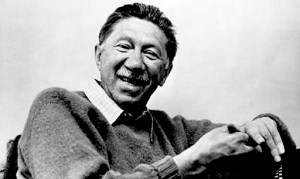Maslow spoke about human motivation and human needs being interrelated. Maslow’s work on the hierarchy of needs pyramid published in 1948 has been the basis of most of the motivational theories in organisations as well as clinical work on the psychology of motivation. Broadly put Maslow states the stages of life and motivation for an individual follow a certain sequence. When one need is met he/she moves on to the next need.
While early researchers were quick to criticise and point out the futility of maintaining this sequence of needs, there is a broad acceptance that the needs themselves are very relevant to motivation. For this reason Maslow’s theory is still taught in all HR curriculums although most researchers agree that these needs are all messily woven into life and cannot be separated so sharply. For most individuals all needs are present in varying degrees at most times. The intensity of each need is subjective to circumstances both within and outside the individual.
So how does one separate or understand what really makes someone motivated to do or not to do something in life?
To understand this concept, the one thing we all need to look at is the number of people who fall out of this hierarchy. Both entrepreneurial and artistic worlds give enough and more examples of such individuals. Van Gogh, who is today one of the most famous artists led a life pf poverty, sickness, and loneliness. What, then, motivated him to keep on painting?(other than his insanity). Steve Jobs who came from a poor house, born of an unwed mother, grew up in foster homes and went on to become one of the most eminent visionaries of all times. Oprah Winfrey is an example of a woman from a social minority who came from impoverished backgrounds but made it to success. At the same time we all have stories of people born into wealth, safety and love whose lives come to nothing or who go onto become drug addicts. Princess Diana, Lance Armstrong, Michael Jackson are hardly names we can associate with self actualisation when they had achieved all the other stages in Maslow’s heirarchy. All these lives instead talk about things that went so drastically wrong. This brings us to the question of what makes a person go from nothing to everything and vice versa
The pillar that holds it all up:
The single most important motivator for any individual to do or not do anything is the purpose behind the act. Why you do what you do will define the importance of what you are doing – for you.
Purpose is what defines an individual and their journey in life. Unfortunately too many of us go through life living on perceived purposes imposed by our upbringing, societal pressure or limiting beliefs. It is not a surprising fact that a lot of us may never figure out, leave alone live our purpose in life. Often, well-meaning voices silence even the attempts to find our purpose by covering it with logic and reasonabilty as the excuse. Unlike commonly perceived, purpose itself does not have to be full of grandeur. Your purpose is your answer to what will make your life worthwhile? What to you would mean that you have truly lived without compromises? Your true answer to this question can be given only by you. For some this could mean bringing up their children and giving them a secure life. For someone else it could mean climbing the highest peaks or swimming in the deepest oceans. When your purpose is clear the other aspects of your life lose their focus and the law of attraction gets into action aligning all the universe to help you achieve your dream.
“The two most important days in your life are the day you are born and the day you find out why.” – Mark Twain
What purpose does for us?
When you are convinced of the purpose of why you are doing something you enter into a state of harmony with yourself and the rest of the universe. You will feel a sense of what many people describe as” seems right”, “felt right in my gut”, “instinctively correct”. At some level all of us know that this state exists either because we have experienced it or because we are constantly experiencing the lack of it. Mihaly Csikszentmihalyi the eminent scientist call this state “Flow”. A state where you are so engrossed that you lose sense of time, hunger, fatigue and the world around you, Gaining a clarity on our life purpose is the single most important thing that can happen to us if it happens at all. And this difference between people who find their life purpose and those who don’t decides how much we will get out of life and be motivated to live it to the fullest.



